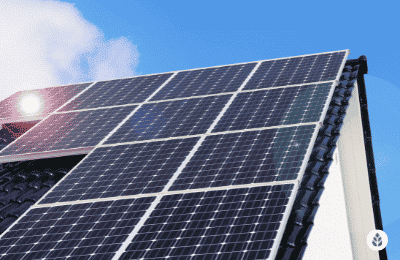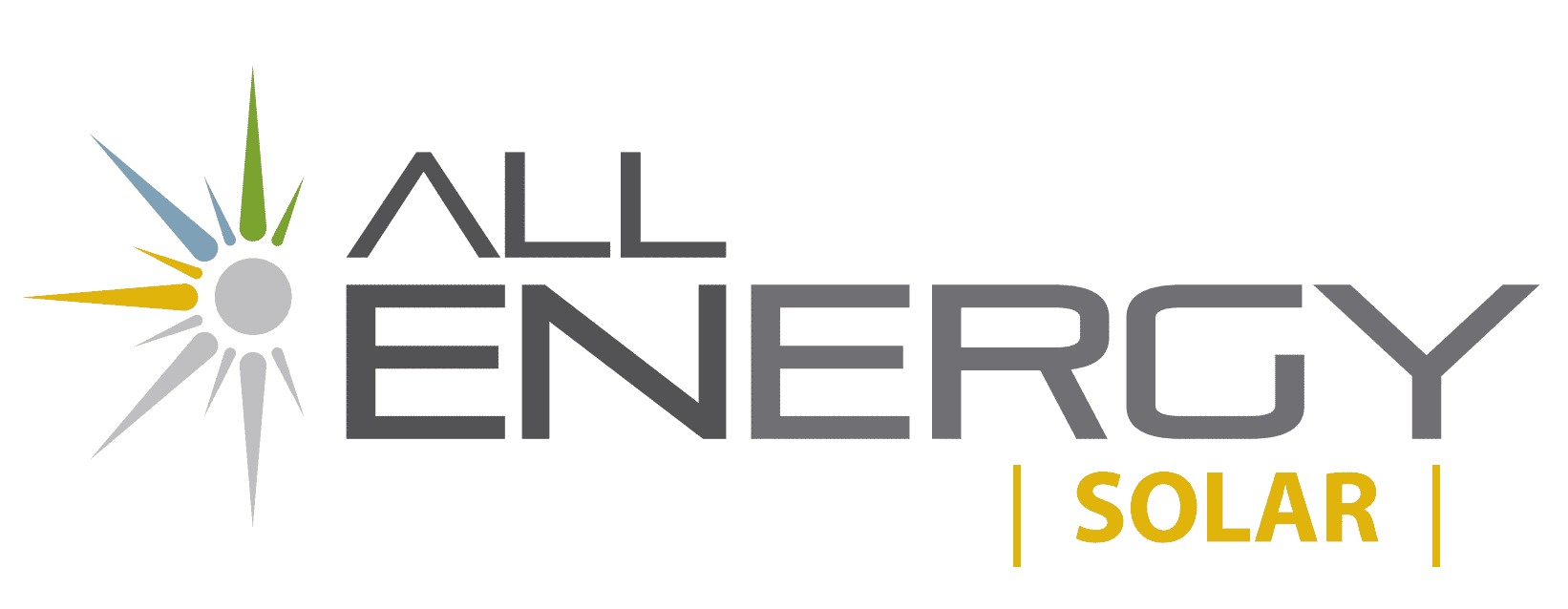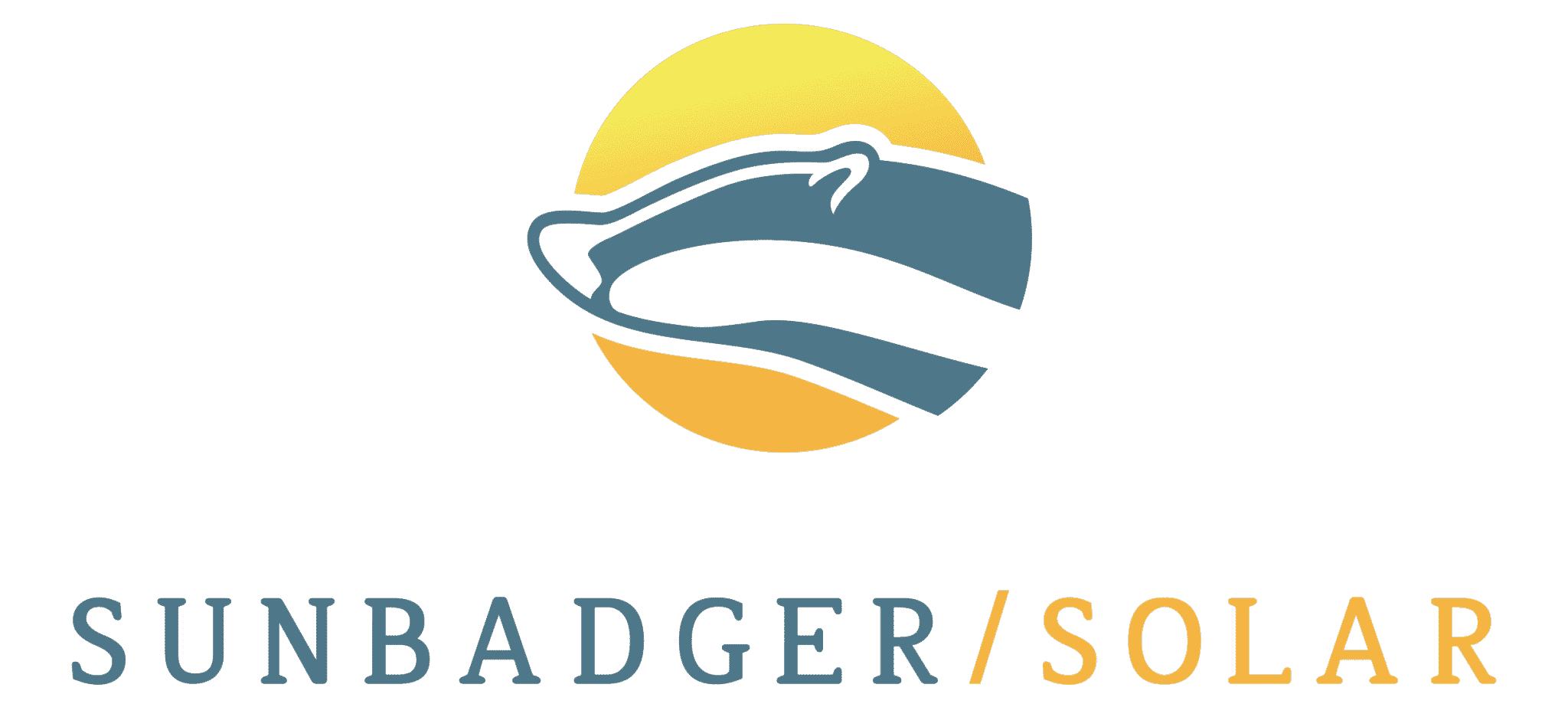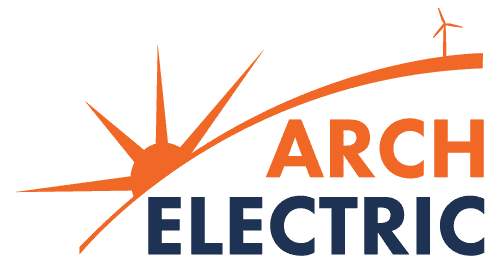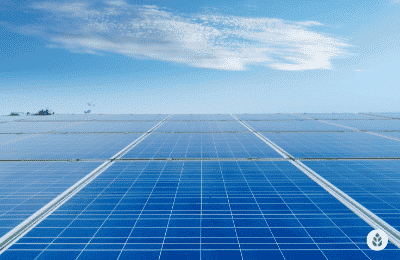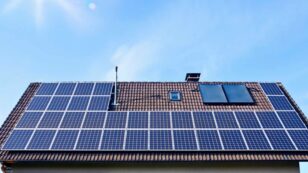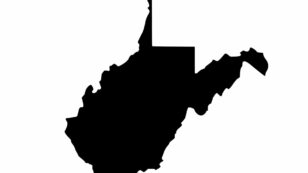
Top 5 Best Solar Companies in West Virginia (2024 Reviews)
In this guide to West Virginia’s best solar companies, you’ll learn
- What are West Virginia’s best solar companies?
- How can you save money on solar panels in West Virginia?
- Will installing solar panels in West Virginia boost your home value?
Each product and or company featured here has been independently selected by the writer. You can learn more about our review methodology here. If you make a purchase using the links included, we may earn commission.
What Are West Virginia’s Top 5 Solar Energy Companies?
Going solar in West Virginia will not only reduce your reliance on utility companies backed by fossil fuels, but it can also massively reduce your electricity bills — which are especially high in West Virginia as residents there use more electricity on average.
If you’re searching for the best solar companies in West Virginia, you’ve likely seen countless reviews online for the top installers throughout the state. Unfortunately, many of these reviews fail to consider some of the local factors that are crucial to getting the best panels for the area.
For example, West Virginia only gets around 164 sunny days per year, which is well below the national average of 205. As such, most homeowners experience the most savings when opting for a company that carries high-efficiency panels to deliver optimal energy production in West Virginia.
The EcoWatch team carefully considers this and several other local factors to bring you the best solar companies for your specific solar project. Our reviews are curated by a team of solar experts, backed by insider data and reviewed by an advisory board to ensure we provide only the most vital information, minus the marketing gimmicks.
As such, we’ve determined that the best solar companies in West Virginia are:
- SunPower: Best National Provider
- Paradise Energy Solutions: Solar Veteran
- YellowLite: Solar Veteran
- Solar Holler: Outstanding Local Installer
- Mountain View Solar: Outstanding Local Installer
Ready to connect with one of the best solar companies and get a free quote for your home? Select one of our top-rated solar providers in West Virginia below, or keep reading to learn more about why we chose each company.

SunPower
Pros
- Most efficient panels on the market
- National coverage
- Cradle to Cradle sustainability certification
- Great warranty coverage
Cons
- Expensive
- Customer service varies by local dealer

Paradise Energy Solutions

Regional Service
Average cost
Pros
- Outstanding customer service
- Many years of experience
- Offers products from leading manufacturers
- Slightly limited service offerings
Cons
- Great warranty coverage
- No leases or PPAs
Paradise Energy Solutions is a regional company based in Pennsylvania that services most of West Virginia. The Harrisonburg-based office provides solar installations in the following cities; Wheeling, Franklin, Elkins, Oundsville, Martinsburg, Snowshoe, Slanesville, Petersburg, Romney and Riverton.
This company is large enough to provide flexibility in scheduling and installations, but it’s not too large where it loses sight of customer care. The customer reviews for Paradise Energy Solutions are overwhelmingly positive, so this might be the best company for you if you’re looking for stellar customer service.
This company stocks a decent number of solar technologies, including some of the more popular options like SolarEdge and Q Cells. It only offers solar panel and solar battery installations, so those looking for solar energy system customization or add-on products like electric vehicle chargers will need to search elsewhere.
All of Paradise Energy Solutions equipment is protected under a 25-30 year manufacturer warranty and installations are protected under a 10-year workmanship warranty. At the moment, the company only accepts cash purchases and loans, although the techs are helpful in securing financing and taking advantage of solar incentives — like the federal tax credit — to minimize costs.
Facts and Figures: Paradise Energy Solutions
| EcoWatch Rating |
|---|
| Better Business Bureau (BBB) Rating |
| Average Cost ($-$$$$$) |
| Solar Services |
| 4.5 |
| A+ |
| $$ |
| Solar Panels, Solar Batteries |

YellowLite

Regional Service
Average cost
Pros
- Representatives are experts on local policies
- Offers products from leading manufacturers
- Full-service home energy solutions
Cons
- No leases or PPAs
- Relatively short workmanship warranty
Yellowlite is a large regional company, but it maintains an impressive level of customer service and care. Most homeowners throughout West Virginia who go solar with Yellowlite are pleased with this company’s communication and attention to detail.
The Ohio-based installer carries a decent selection of residential solar equipment brands, including some of the more popular and efficient ones, like Canadian Solar and SunPower panels. These are well-suited for WV homeowners who want to maximize energy production even through the many days of limited sunlight in the area.
Yellowlite has robust warranty coverage that keeps the equipment safe and helps provide peak energy production to maximize your savings on your energy bills, even in West Virginia’s cloudy and rainy weather. However, its workmanship warranty isn’t the best.
Yellowlite only accepts cash purchases and solar loans.
Facts and Figures: YellowLite
| EcoWatch Rating |
|---|
| Better Business Bureau (BBB) Rating |
| Average Cost ($-$$$$$) |
| Solar Services |
| 4 |
| A+ |
| $$$ |
| Solar Panels, Solar Batteries, System Monitoring, General Contracting, Maintenance & Repairs |

Mountain View Solar
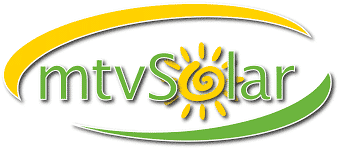
Local Service
Average cost
Pros
- Outstanding customer service
- Multitude of products and services
- Easy and efficient consultations
Cons
- No leases or PPAs
- Relatively short workmanship warranty
Mountain View Solar is a local company based in Morgan County. It offers residential, commercial, government and non-profit solar installations throughout most of West Virginia as well as parts of Virginia, Maryland and Pennsylvania. It’s a great option for business owners looking to go solar to reduce workplace electricity costs and carbon footprints.
Given its smaller size, Mountain View maintains stellar customer service ratings. Its techs are well acquainted with the needs of West Virginia residents, and they offer assistance in applying for solar loans and maximizing your home’s energy efficiency.
This solar installation company carries a nice array of solar power brands, including popular ones like Tesla Solar, Enphase and SolarEdge, as well as some more affordable options. It also offers a wide range of clean energy services. Along with solar panel installation, and solar batteries, it offers some less-common options like electric vehicle charger installation and energy monitoring.
Mountain View Solar’s 5-year workmanship coverage is lacking a bit compared to competitors, but some of the equipment comes with the industry-standard 25-year coverage from the manufacturer.
Facts and Figures: Mountain View Solar
| EcoWatch Rating |
|---|
| Better Business Bureau (BBB) Rating |
| Average Cost ($-$$$$$) |
| Solar Services |
| 3.5 |
| A+ |
| $$ |
| Solar Panels, Solar Batteries, EV Chargers, System Monitoring |

Solar Holler
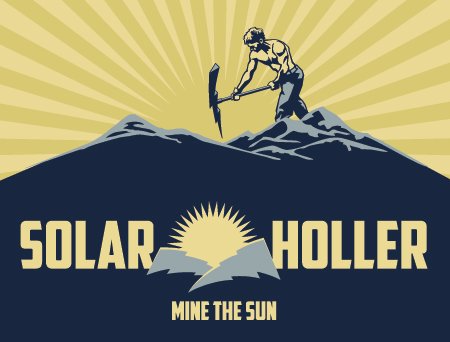
Local Service
Average cost
Pros
- Outstanding customer service
- Representatives are experts on local policies
- Great warranty coverage
Cons
- No leases or PPAs
- Limited brands of solar equipment available
- Slightly limited service offerings
Solar Holler is another solar panel company local to West Virginia, and its small size is evident in the customer service it provides.
The technicians are professional, friendly, timely and have an intimate understanding of the local needs of WV residents. They’re willing to help secure the best solar financing possible, and they can provide customized guidance and recommendations based on your home’s energy needs and efficiency.
Solar Holler carries just a handful of solar equipment brands, but just one each for panels, batteries and inverters. Your options for customization will be limited, especially because the services provided are also limited. Customers looking for electric vehicle chargers or other add-on products and services beyond solar panels, solar batteries and energy monitoring will need to turn elsewhere.
It’s worth noting that installation costs are reportedly a bit higher with Solar Holler compared to some installers on this list. The company doesn’t accept leases or power purchase agreements (PPAs).
What we do love is that this company includes a 5-year warranty for roof penetration, which will provide some peace of mind in West Virginia through all of the rain and snow.
Facts and Figures: Solar Holler
| EcoWatch Rating |
|---|
| Better Business Bureau (BBB) Rating |
| Average Cost ($-$$$$$) |
| Solar Services |
| 3.5 |
| Not Rated |
| $$ |
| Solar Panels, Solar Batteries, System Monitoring |
Watch Below: Learn How You Can Profit Off Of the Extra Energy Your Solar Panels Produce
How Can You Save Money When Hiring A Solar Company In West Virginia
The cost of solar panels in West Virginia is a touch above average, costing $3.33 per watt compared to the national average $3.33 per watt. However, because the average West Virginia resident has greater energy needs, you’ll typically need a much bigger renewable energy system to power your home, which leads to higher installation costs.
For example, the average West Virginian will install an 11 kilowatt (kW) photovoltaic system, which costs $36,960 before incentives, while the average American installs a 9 kW photovoltaic system at $29,970.
However, there are still ways you can save money when installing solar in West Virginia by doing things like:
- Taking advantage of solar incentives
- Only installing as many panels as you need
- Installing high-efficiency solar panels
- Shopping around for the best solar quotes
Take Advantage of West Virginia Solar Incentives
The federal Solar Investment Tax Credit (ITC) is the best financial incentive available to West Virginians, worth an average $11,088.
But we want to be clear that the ITC is not a rebate, but rather a reduction on income taxes that you owe. This credit gets applied to your income taxes for the year your system is installed, but if you don’t owe $11,088 that year, it can be rolled over for up to five years.
Below you’ll find an overview of all of the solar incentives available in West Virginia.
| WEST VIRGINIA SOLAR INCENTIVE | DESCRIPTION |
| Federal Solar Tax Credit (ITC) | The federal solar tax credit is an incentive provided by the federal government to entice all homeowners to convert to solar energy. The credit gets applied to your federal tax liability, and you’ll have the option to roll over unused credit with some restrictions (discussed below). The credit is for 30% of your entire solar panel system cost.3 In West Virginia, where most homeowners pay an average of $36,960 to go solar, the credit amounts to $11,088, on average. |
| Net Metering | Net metering is a billing policy offered by utility companies and mandated by the State of West Virginia. It helps homeowners maximize their energy savings, often allowing them to offset their electric bills entirely. Basically, you can offset costs for incoming kilowatt-hours using excess energy production from times when your panels produce more than you use.4 |
| West Virginia Solar Rights | Although West Virginia doesn’t have many solar incentives, the state does have laws that protect every taxpayer’s right to install solar panels and maintain access to sunlight during peak hours.5 The West Virginia Solar Rights Laws mean no governing body (including a homeowners association) can prevent you from installing solar panels, and no other home or commercial entity can block your panels from receiving sun. |
Only Install As Many Panels As You Need
You pay for solar on a per-watt basis, so the fewer panels you install, the less money you’ll spend on your solar installation.
The average West Virginian uses 1,066 kilowatt-hours (kWh) of energy a month.6 Divide this number by 100 gives a ballpark figure of the system size needed, which is why the average West Virginia resident needs an 11 kW system to fully offset their energy needs (rounded up from 10.66).
But you may not be on par with the average West Virginian. Look at your utility bills to get an idea of your monthly energy consumption and only install the system size that you need. For example, if you only use 800 kWh of electricity a month, you’d only need an 8 kW system which would cost you $18,816.
| Size of Solar Panel System | West Virginia Solar Panel Cost | Cost After Federal Tax Credit |
| 8 kW | $26,880 | $18,816 |
| 9 kW | $30,240 | $21,168 |
| 10 kW | $33,600 | $23,520 |
| 11 kW | $36,960 | $25,872 |
| 12 kW | $40,320 | $28,224 |
| 13 kW | $43,680 | $30,576 |
| 14 kW | $47,040 | $32,928 |
Install High-Efficiency Solar Panels
Choosing to install high-efficiency panels, like the ones from SunPower, is another way to save money. Sure, higher-tech panels may cost more than lower-efficiency panels, but because they’re stronger, you’ll need to purchase fewer of them to power your home.
High-efficiency panels are especially important in West Virginia because it only gets around 164 sunny days per year (well below the national average of 205).7 Buying solar panels that have an efficiency rating of around 20% or more will allow you to get more solar energy output during shorter periods of sunshine.
Shop Around For the Best Solar Quotes
West Virginia has been extremely slow when it comes to adopting solar, with only 8 installers in the Mountain State, according to the Solar Energy Industries Association (SEIA).8 (However, there may be more solar companies that serve West Virginia but aren’t necessarily located there.)
We recommend getting solar quotes from two or more of the companies featured in this review to ensure you’re getting the best value solar panels. If you prefer one company over another but it’s more expensive, use the lower quote as a bargaining chip to see if you can save some money on your solar installation.
See Also: Calculate How Much You Can Save By Going Solar
Will Solar Increase Your Home Value In West Virginia?
Solar panels have been shown to increase home value. A 2022 EcoWatch survey of 1,000 homeowners found that 63% of homeowners would pay more for a home with solar panels than a home without.
Real estate company Zillow completed another data study that found homes with solar panels sold for about 4% more on average compared to homes without solar.9 In West Virginia where the average home costs $157,272, that leads to a potential home value increase of about $6,448.
Of course, the increase will likely be higher depending on the median home price where you live.
Should West Virginia Residents Hire a Professional Solar Installer Or DIY?
You may be thinking of performing a DIY solar panel installation to save money, but is it worth the risk?
Let’s think about how much money you’d be saving. Of course, labor costs vary by company, but according to the U.S. Department of Energy’s National Renewable Energy Laboratory, it usually accounts for at least 10% of the total cost of solar installation.10
In West Virginia where the average solar installation costs $36,960, you can expect labor costs to be about $3,696 of the total installation.
If you’re a handy homeowner, the nearly $4,000 in savings may be tempting enough to try to install your own panels. But there are some major downsides to DIY solar panel installation:
- You could damage your home or your solar equipment
- You may install the solar system incorrectly or inefficiently
- Your solar panels likely won’t be protected under warranty (many companies specify that warranty claims are only valid if installed by certified technicians)
If you’re only looking to install a few solar panels for an RV or to power a few home appliances, you may be able to complete a DIY solar installation no problem. But if you’re wanting a solar panel system strong enough to power your entire home, we recommend hiring a solar company.
What Should West Virginia Residents Look For in a Solar Installer?
While there aren’t a ton of solar companies in West Virginia, you still want to make the right choice for your home. We recommend choosing a solar company that offers:
- Battery storage installations
- High-efficiency solar panels
- Comprehensive warranty coverage
Solar Battery Installations
West Virginia sees the second-highest average number of power outages, making energy storage a higher priority in the Mountain State.11 Choosing a solar company that installs solar energy storage allows you to have an energy backup plan during times of extreme weather or power outages.
High-Efficiency Solar Panels
Again, we highly recommend installing high-efficiency solar panels in West Virginia because it sees less sunshine annually. We recommend picking an installer that offers the most efficient solar panels, that includes brands like Maxeon, Jinko Solar, REC or Panasonic.
Comprehensive Warranty Coverage
Going solar in West Virginia is a big investment, so you want to get the most out of it. Your panels should last you at least 25 years, so you shouldn’t accept a solar panel warranty that’s any less than that.
We personally think SunPower and Solar Holler stand out in terms of warranty coverage. SunPower offers an all-inclusive 25-year warranty covering manufacturer, workmanship and production guarantee. Solar Holler offers 25-year equipment, 10-year workmanship and an impressive 5-year roof penetration warranty, which is especially nice considering West Virginia’s extreme weather patterns.
The cost information presented in this article is derived from a comprehensive analysis, incorporating data from multiple industry sources. The average cost per watt per state was calculated based on figures from Consumer Affairs, Energy Sage, and Berkeley Lab’s Electricity Markets & Policy Department. Additionally, monthly energy consumption and the average monthly cost of electricity were sourced from the U.S. Energy Information Administration, ensuring a well-rounded and accurate representation of the information presented.
Methodology: How We Ranked West Virginia’s Solar Companies
When we rank our top solar companies, we start by identifying the factors that matter most when ensuring that our readers find a trustworthy, reliable and environmentally responsible installation. We’ve listed those factors as categories below. We then weigh these factors against the industry benchmark (a company meeting the industry standard in all categories would earn 4 stars in our rating system).
Our goal is to deliver unbiased reports and honest reviews, thus, our methodology is not affected by commercial partnerships and is specifically tailored to West Virginia homes.
- Solar Services (20%): Some companies just handle panel installs, while others include solar batteries, electric vehicle chargers, roof repair, energy monitoring and more to the list of options and customizations. Companies that have a robust service offering rank higher because they’re more likely to appeal to a wider range of customers in West Virginia.
- Qualifications, Reputation & Certifications (20%): Connections to important solar organizations set some installers apart from others and position them as proponents of the industry, rather than companies solely after profit. Some affiliations we look for include the Solar Energy Industries Association (SEIA), the North American Board of Certified Energy Practitioners (NABCEP), Solar United Neighbors of West Virginia and Energy WV.
- Solar Warranty & Customer Support (15%): All warranty coverage is beneficial, so we award companies higher the more comprehensive the warranty. However, most WV residents prioritize production guarantees because the state sees less than average sunshine, so we rank those companies (and their reported customer support) even higher.
- Solar Financing Options (15%): Some companies only accept cash purchases and solar loans, which are the only options we typically recommend. However, we do give more weight to companies that offer more financing options, like other solar leases and power purchase agreements (PPAs), because they make solar more accessible to more homeowners.
- Experience (10%): While not always the case, many newer solar companies pop up just to try to capitalize on solar’s growing popularity. These companies often don’t provide great service, and companies without a proven track record in the industry are more likely to go out of business and void your warranties in the process. We rank companies with longevity higher for this reason.
- Availability (10%): Not all solar companies in West Virginia serve the entire state, but we give a higher ranking to the companies that do.
- Environmental, Social and Corporate Governance Factors (10%): While going solar is great for money-saving benefits, we prioritize people and the planet alongside your profit. As such, we take each company’s ecological and ethical standards into account when ranking our top providers in West Virginia.
FAQ: Best Solar Companies in West Virginia
The EcoWatch team gets lots of questions about the process of going solar. Below are some of the questions we’ve seen the most, along with our responses. If you have specific questions about going solar in West Virginia that aren’t answered here, reach out to our team of solar experts at solar@ecowatch.com.
Based on our in-depth reviews, we have determined that Yellowlite is the most reputable solar company in West Virginia.
Despite being a larger national company, Yellowlite provides outstanding customer service and customer care to homeowners throughout West Virginia. It has solid warranties that provide peace of mind, good financing options, and a nice selection of products and services to choose from for the customization of your solar power system.
Yes, the solar panel brands you select do make a difference in West Virginia. Homeowners in the area are well acquainted with cloudy days and an abundance of precipitation, including rain and snow. These weather conditions are suboptimal for solar panels, and energy production will be more limited on cloudy days or during inclement weather.
As such, most West Virginia residents opt for high-efficiency solar equipment to maximize energy production even during less-than-ideal weather. Some companies don’t offer high-efficiency options for panels and will be less appealing to most homeowners in WV.
There are many factors you should consider when going solar in West Virginia. However, one of the most crucial criteria is the warranty coverage offered. We believe power production warranties help guarantee that you save the maximum amount of money even during the frequent inclement weather in WV. Labor and roof penetration warranties can help protect your equipment and home from damage, the latter of which is especially important given the amount of precipitation West Virginians experience.
Based on data from the Solar Energy Industries Association (SEIA), there are just 19 West Virginia solar companies. Of these 19, only 10 focus on the installation of home solar equipment.
Given that West Virginia sees far fewer days of sunlight than the rest of the country, we often get questions from residents about whether or not solar panels work on cloudy days. Solar panels will still produce some energy on cloudy and rainy days, but it will be far less than on sunny days. For this reason, many West Virginians opt for more costly but more efficient panels to maximize energy production even in inclement weather.
Related articles
Top Solar Installers in West Virginia Cities
Comparing authorized solar partners
-
- Most efficient panels on the market
- National coverage
- Cradle to Cradle sustainability certification
- Great warranty coverage
- Expensive
- Customer service varies by local dealer
A+Best National Provider1985SunPower Panels25-year all-inclusive warranty
Having trouble deciding? Click below and use our process to receive multiple quotes instead:

 233k
233k  41k
41k  Subscribe
Subscribe 

